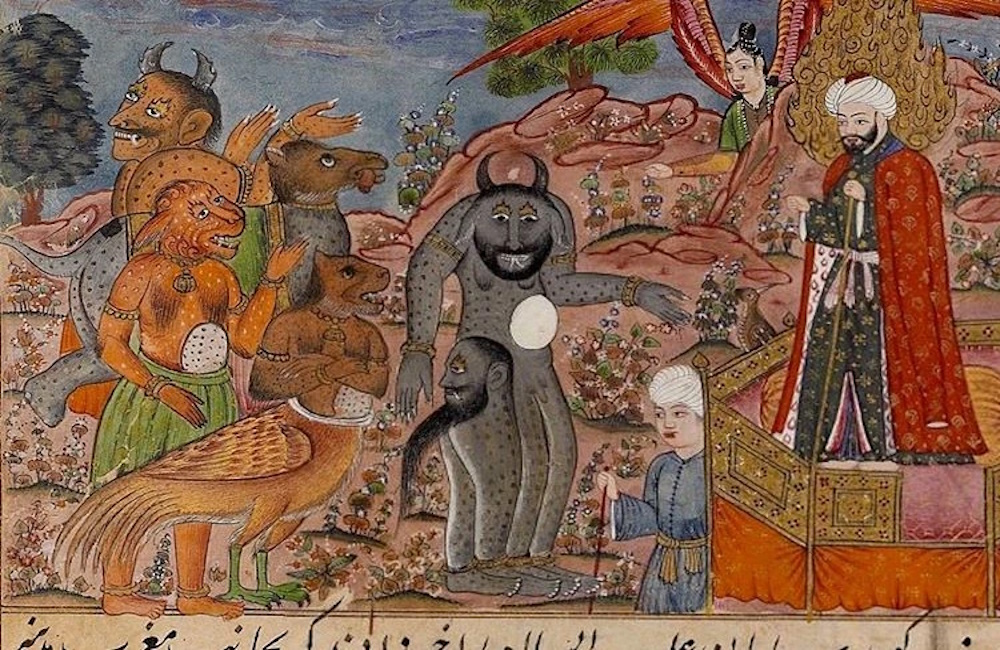As individuals who submit to Allah, Muslims believe in the revealed truth of the Quran in all its aspects. This includes accepting even the extraordinary accounts of Solomon’s abilities as real and divinely inspired. However, these narratives, which may seem fantastical, do not necessarily align with objective truth. The stories about Solomon and the demons, as well as his ability to communicate with birds and ants, appear to be influenced by Jewish Talmudic traditions and folklore. Muhammad may not have distinguished between the revealed word of the Torah and other contemporary Jewish writings.
From the Islamic perspective, Solomon’s communication with birds, understanding the speech of ants, and mastery over the jinn are central to his portrayal in the Quran. In Surah 27:18-19, for example, the Quran describes how Solomon, upon approaching the valley of the ants, hears an ant warning its fellow ants to go into their dwellings to avoid being crushed by Solomon’s army. Solomon’s understanding of the ant’s speech is portrayed as a sign of his divine wisdom and favor. “18Until, when they came to the valley of the ants, an ant said, ‘O ants, enter your dwellings lest Solomon and his soldiers crush you while they perceive not. 19So [Solomon] smiled, amused at her speech, and said, ‘My Lord, enable me to be grateful for Your favor which You have bestowed upon me and upon my parents and to do righteous work of which You will approve and admit me, by Your mercy, into the ranks of Your righteous servants.” These extraordinary abilities highlight his role as a wise and just leader, and the Quranic accounts celebrate his unique gifts while offering profound lessons about divine wisdom and the interconnectedness of all creation.
According to the Quran, Solomon was granted dominion over the jinn, who assisted him in various tasks, including the construction of the temple. The Quranic verses that describe this are found in Surah 34:12-13: “And to Solomon [We subjected] the wind—its morning [journey was that of] a month—and its afternoon [journey was that of] a month, and We made flow for him a spring of [liquid] copper. And among the jinn were those who worked for him by the permission of his Lord. And whoever deviated among them from Our command, We will make him taste of the punishment of the Blaze. They made for him what he willed of elevated chambers, statues, bowls like reservoirs, and stationary kettles. [We said], ‘Work, O family of David, in gratitude.’ And few of My servants are grateful.” These verses depict the jinn as obedient servants of Solomon, tasked with constructing grand structures, including the temple. However, this narrative likely has its origins in Jewish Talmudic traditions, where similar stories about Solomon’s control over demons are found.
From a Biblical perspective, this portrayal conflicts with the nature of God as understood in Judaism and Christianity. The God of Israel is holy and would never allow demons or jinn—often associated with malevolent spirits in these traditions—to participate in the construction of His holy temple. The temple was a sacred place where God’s presence dwelled on Earth, and it would be contrary to His holy nature to involve such beings in its construction.
This significant theological difference highlights the divergent views between the Quran and the Bible regarding the role and nature of Solomon’s reign and the sanctity of the temple. While the Quran emphasizes Solomon’s dominion over both humans and jinn as a sign of divine favor, the Bible portrays the building of the temple as a purely divine and holy endeavor, without the involvement of beings that could be considered unclean or impure.
However, from a Christian perspective, there is concern that such fantastical stories might be seen as lacking in historical credibility. Christianity emphasizes the authenticity and integrity of the Bible, which does not include these supernatural elements in its depiction of Solomon. The Bible portrays Solomon’s wisdom and accomplishments within a different context, focusing on his role as a wise king and builder, rather than attributing to him the paranormal abilities described in the Quran. This difference in interpretation highlights broader variations in religious understanding.
Muslims may argue that fantastic stories also appear in the Bible, citing examples such as Balaam’s donkey speaking. However, the key distinction is that in this biblical narrative, the speaking donkey is presented as a direct intervention by God to prevent Balaam from engaging in divination. This intervention underscores a specific divine purpose and is framed within the context of God’s corrective action. In contrast, the Quranic stories about Solomon’s abilities are presented as inherent aspects of his prophetic role, without a similar divine corrective purpose.
Given these profound differences, it becomes clear that meaningful dialogue about these stories is not feasible. The divergence between the Quranic and Biblical portrayals of Solomon reflects fundamental disagreements in the religious narratives and beliefs of Islam and Christianity. Since the Quran’s account of Solomon includes elements, such as his ability to speak with ants, that are not found in the Bible, reconciliation of these differing views on Solomon’s abilities is not possible. This underscores the complexities and limitations of interfaith discussions when deeply divergent interpretations of sacred texts are involved.
